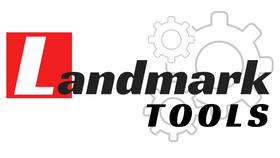Jointers are a necessary tool for any woodworker. Whether you are a hobbyist or a professional woodworker, jointers provide the capability of creating pieces with more precise dimensions. They somewhat work as a hand planer, but instead, the wood runs against the tool rather than running the tool against the wood.
Most jointers consist of a long flat table surface, adjustable cast-iron guide fence, and cutter head. The fence helps guide the wood as it moves through the cutter head. The height of the fence can be adjusted, which allows for different depths of cut.
As the wood moves through the jointer/planer, the cutting blades on the cutter head shear off a thin shaving of wood. This produces a straight and smooth edge on the board’s face, making the lumber suitable for finishing carpentry projects.
Before you buy a jointer for your shop, decide which one is best suited to the layout of space and tools available. If working in a small area with limited workspace accessibility, a 72-inch jointer may not be ideal; instead, consider selecting either a smaller benchtop jointer and vice versa.
What Are Jointers Used For?
Woodworking jointers are used to create perfectly flat and smooth surfaces on wood boards. They are especially useful for creating joints, preparing surfaces for veneering or laminating, removing twists, flattening out cupped boards, and preparing board edges to be glued together.
What Is A Good Jointer To Buy?
Woodworking jointers from Cantek (like the Cantek J-168LH 16" and the Cantek J-127LH 12") are an excellent option if you are looking for a rugged, high-quality commercial jointer that is also affordable. With solid construction and precision engineering, these jointers will help you dimension wood quickly and easily, preparing it for other woodworking processes.
What Are The Different Types Of Jointers?
There are four common types of jointers:
1. Closed Stand Wood Jointers:
Closed jointers have a fixed enclosed base designed to protect the blade, motor, and other internal components from wood dust or debris. On the upside, this guarantees durability and protection but then makes it a little bit heavier and slightly more expensive.
2. Tabletop Jointers:
They are best suited for heavier jobs that benchtop jointers cannot handle. They are capable of thicker and broader wood because of their longer and bigger table. The Cantek J-168LH 16" and the Cantek J-127LH 12" are good examples.
3. Benchtop Jointers
These are the most common jointers for woodworking beginners. They are less expensive and more portable. However, they don't have enough power to handle thick & wide hardwood.
4. Open Stand Jointers
These jointers are almost the same as the closed stand jointers but without the heavy framing. this makes them more portable and lighter.
Also see our other woodworking tool categories including panel saws, miter saws, and sliding table saws.











































